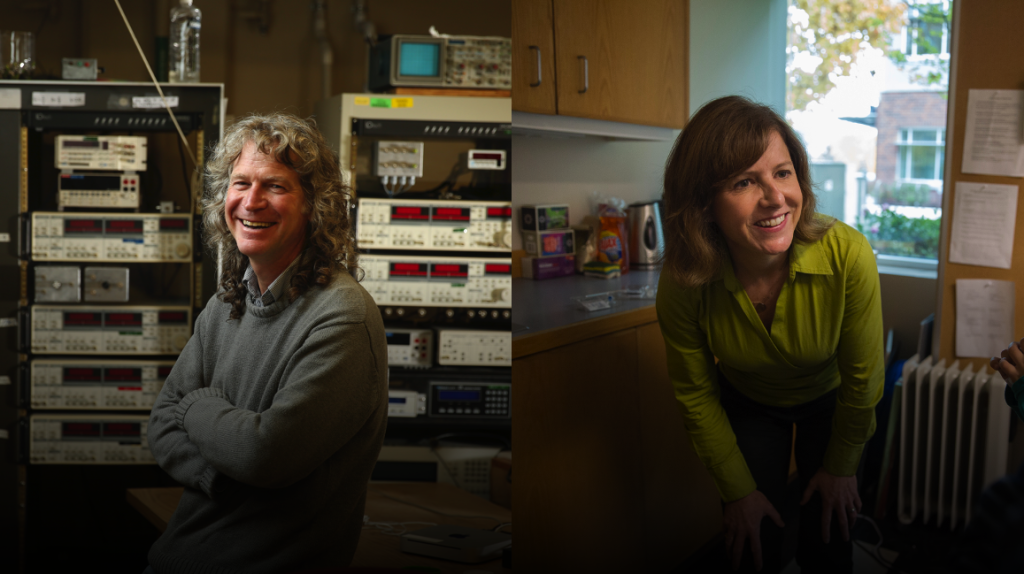
The Office of the Vice President for Research and Innovation is proud to announce the recipients of the 2021 Outstanding Research Awards. The awards recognize and celebrate achievements in research and scholarship and highlight notable research activities taking place at the University of Oregon.
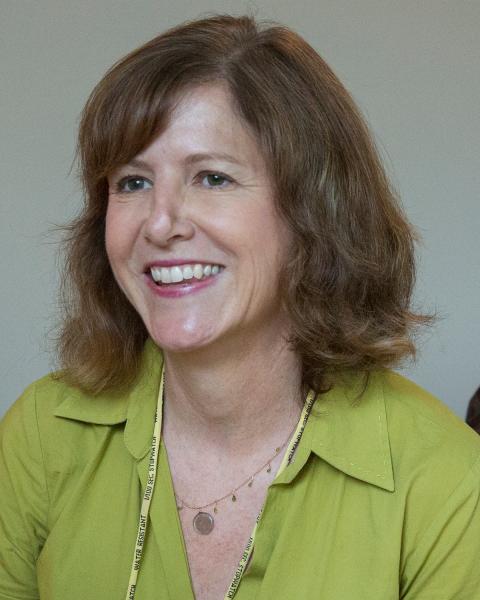
Meet Our Career Award Recipient
Leslie Leve
Professor, College of Education / Associate Director, Prevention Science Institute
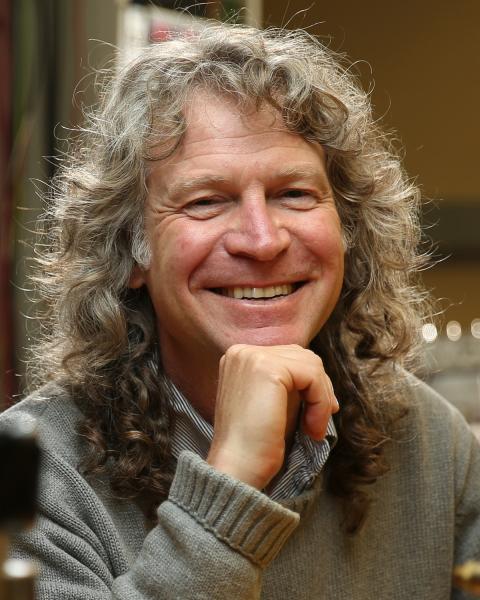
Meet Our Career Award Recipient
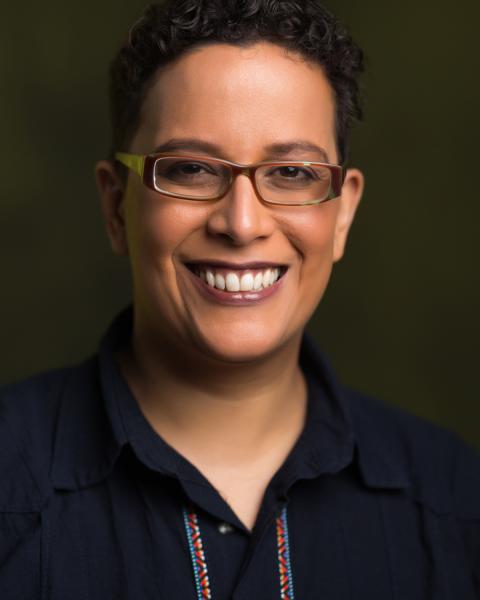
Meet Our Early Career Award Recipient
Ana-Maurine Lara
Assistant Professor, Department of Women’s, Gender, and Sexuality Studies
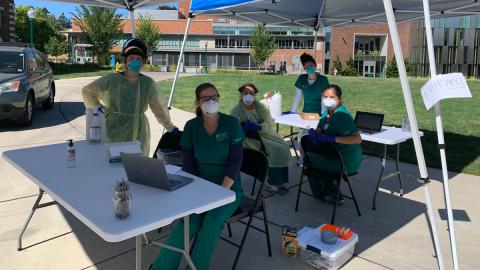
Meet Our Innovation Award Recipient
COVID-19 Monitoring and Assessment Program (MAP) Team

Meet Our Innovation Award Recipient
Institute for Health in the Built Environment (IHBE) COVID-19 Research Team
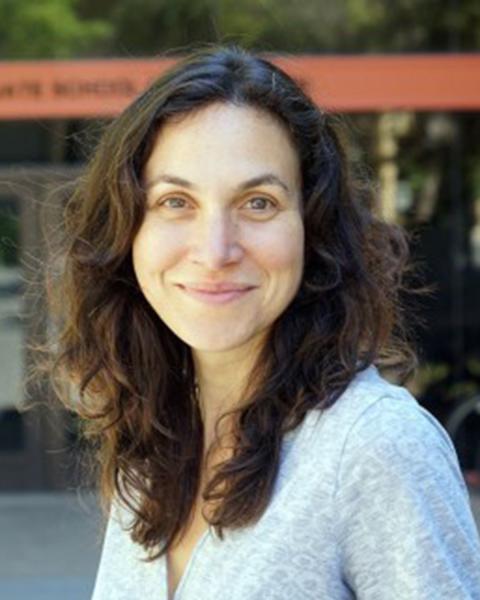
Meet Our Impact Award Recipient
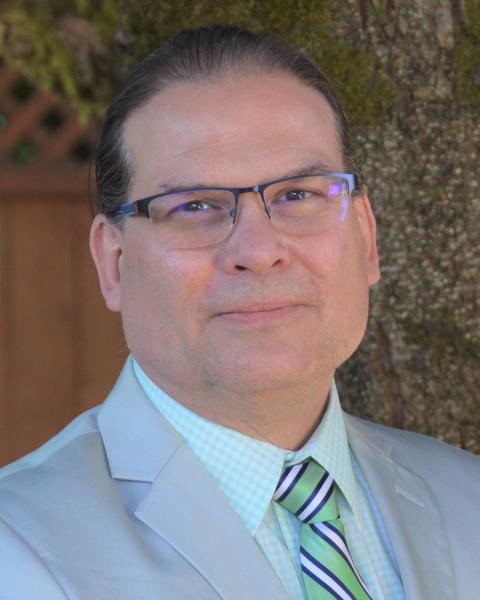
Meet Our Outstanding Accomplishment NTTF Award Recipient
The Outstanding Career Award is UO’s highest award for faculty to recognize and celebrate a deep and distinguished record of scholarship and research on our campus and external recognition and support of such efforts, and national/international prominence in their field of research.
Leslie Leve has had an illustrious career and it’s far from over. A highly productive researcher and administrative leader, she has played a major role in shaping the field of prevention science and is among the top sponsored researchers on campus with more than $30 million in current funding.
“She is an extraordinary scientist and accomplished faculty member who is an inspiration to those around her.” —Laura Lee McIntyre, Professor and Department Head, Department of Special Education and Clinical Sciences / Director, Prevention Science Institute
Leve’s research focuses on the influences of genes and environment on child development, which is conducted by studying children and their biological and adoptive families and siblings. The findings by her and her collaborators suggest that children’s behavior evolves from a complex and dynamic interplay between one’s rearing environment and their genetic make-up. For example, she and colleagues have found that children with problem behaviors may inherit these traits from their biological parents, but these behaviors can still be mitigated by positive interactions with adoptive parents, preventing them from developing long-term problems. The results of her research highlight the importance of supportive family contexts in child development. Leve also co-directs a center on parenting in the context of opioid use, where she is expanding her work focused on interventions and outcomes for girls and women.
“I really enjoy thinking about novel approaches to testing core questions in child development, like our adoption-sibling study,” Leve said. “This research often involves interdisciplinary partnerships that push my thinking in new directions. And the really exciting part is that ah-ha moment, when we realize how to take a new finding and apply it to an intervention to improve public health outcomes.”
Leve has received multiple new grants and contracts over the past year, including two large supplements to existing awards focused on COVID-19 testing in underrepresented communities. As the co-science lead and former executive director of the UO’s COVID-19 Monitoring and Assessment Program, she has played a critical role in the UO’s response to the pandemic, and her commitment to administrative leadership and service has led to partnerships with investigators in other disciplines.
“She works in teams across campus and has developed collaborators in multiple departments, and as a result her work is truly multidisciplinary,” said Beth Stormshak, Philip H. Knight Chair, professor in the Department of Counseling Psychology
Since receiving her Ph.D. from the UO in Developmental Psychology in 1995, Leve has published more than 177 scientific articles and 20 book chapters, among other publications. Her research has been funded by grants from the National Institutes of Health, U.S. Department of Justice, and U.S. Department of Education and she has written or co-written more than 50 competitively funded proposals, resulting in nearly $100 million of external funding.
“I am so honored, and feel very fortunate to be surrounded by colleagues at the Prevention Science Institute, the College of Education and across the institution to conduct research that aims to impact public health and improve lives,” Leve said.
Richard Taylor’s remarkable research career is notable for both its breadth and impact. In addition to traditional physics contributions, Taylor has adopted an interdisciplinary approach to studying natural patterns called fractals and extended the impact of his work far beyond traditional academic or intellectual boundaries.
“What I believe makes Richard such a distinctive and distinguished researcher is the astonishing variety and interdisciplinarity of his interests and accomplishments.” —Paul Peppis, Director, Oregon Humanities Center / Professor, Department of English.
Taylor’s focus has been on bio-inspiration — exploring the favorable properties that make fractals so prevalent in nature and applying them to artificial systems. His published studies span physics, chemistry, psychology, physiology, neuroscience, architecture and art. Each project has benefitted from synergies and celebrates the power of liberal arts research. His work on fractal electronic implants builds on his 35 years of experience in the fabrication, measurement and modelling of nanotechnology and seeks to restore vision to the millions of people who annually lose vision due to retinal diseases. His collaborations with psychologists have shown how the visual system has evolved to process nature’s fractals with ease and how this process triggers stress reduction and his results have significant consequences for art, design and architecture. Taylor is also internationally known for his computer analysis of art. In particular, his Nature paper on Jackson Pollock led to his role as an authenticator.
“As a little kid I couldn’t figure out what to do because I found everything fascinating,” Taylor said. “In particular, I couldn’t choose between the arts and sciences. And that’s how I strayed onto studying nature’s patterns. It doesn’t matter if you are, for example, in biology or religious studies — everyone has an interest in nature.”
Taylor’s impressive research productivity is matched by his significant contributions as a public ambassador and advocate for scientific research, through media and public engagement accessible for lay audiences. He has been featured in TV documentaries, popular science books, been the subject of popular magazine and newspaper articles and given numerous public lectures around the world on his research. Additionally, he has served as director of the Materials Science institute for eight years and head of the Department of Physics for three years and he has significantly helped other UO researchers maximize their impact.
“His openness to new avenues of research translation and application is infectious,” said Ihab Elzeyad, a professor in the Department of Architecture and the director of the High Performance Environments Lab. “Collaborations with Richard have opened up multiple research ideas and avenues of inquiry for our research groups and connect basic and applied research together.”
Since receiving his Ph.D. from the University of Nottingham in 1988, Taylor has worked in seven countries and has established strong international collaborations. He joined the UO in 1999. He has written 325 papers and has attracted significant funding — more than $11 million in individual and small-team grants and $75 million in large-team grants, and he has received more than 50 awards for his interdisciplinary research.
“It’s amazing to receive the Outstanding Career Award but even more so to receive it at the University of Oregon,” Taylor said. “Research is a human endeavor and I have met so many talented people here who have become my friends. Whether students or professors, they are the outstanding ones who helped me get this award.”
The Early Career Award is UO’s highest award for early career faculty to recognize and celebrate an emerging and significant record of scholarship and research on our campus.
Ana-Maurine Lara has achieved a significant record of outstanding interdisciplinary accomplishments across several fields, including anthropology, literature, performance studies, women and gender studies, digital humanities and indigenous, race and ethnic studies. An innovative scholar, she combines qualitative social science research with the artistic production of fiction, poetry and performance.
“Her research portfolio has had a broad impact on the multiple disciplines she transverses in illuminating communities, experiences and knowledges that are under-examined.” —Priscilla Yamin, Associate Professor, Department of Political Science / Department Head, Department of Women’s, Gender, and Sexuality Studies
Lara engages questions of race, gender and freedom using critical analysis and artistic imagination. Her work is notable in its creativity and breadth in explicating the experiences of Caribbean queer lives and struggles as central to the processes of black freedom. She has published papers in some of the leading journals in her field and across an array of disciplines. Lara’s books have made a major impact in the fields of Black studies, gender and feminist studies, Caribbean studies and anthropology. The digital humanities project she co-authored with Alaí Reyes-Santos, and that they co-created with the Digital Scholarship Center, “Caribbean Women Healers: Decolonizing Knowledge within Afro-Indigenous Traditions,” is part of an innovative form of publishing called “public scholarship.” The site has had more than 4,700 social media hits, 247 website registrants and 78 attendees since launching in April 2020.
“My research and creative work are means of survival in a world brutally opposed to my existence and the existence of others like me. I seek to enable my own and others’ freedom now and into the future. Given the broader social and political context in which my work exists, it moves me, deeply, that my colleagues deem my work worthy of an Outstanding Early Career award. I am completely and happily surprised,” Lara said.
Lara joined the UO in the fall of 2015 after completing her Ph.D. at Yale University. Since joining the UO faculty, she has published two academic monographs, five peer-reviewed articles (one co-authored), a book of poetry and two short stories, a novella and a limited-edition letterpress multi-media artbook. She has also produced two performances and is co-editing two peer-reviewed collections. Her book “Queer Freedom: Black Sovereignty” (SUNY Press) was recently awarded the 2020 Ruth Benedict Prize for Outstanding Monography from the Association for Queer Anthropologists, a section of the American Anthropological Association; her book “Streetwalking: LGBTQ Lives and Protest in the Dominican Republic” (Rutgers University Press) received an Honorable Mention for the Isis Duarte Prize of the Dominican-Haiti section of the Latin American Studies Association, and her poetry book, “Kohnjehr Woman” (Redbone Press, 2017) was a finalist for the Lambda Literary Award in 2018. In 2019 she received the Oregon Literary Arts Foundation Laurell Swails and Donald Monroe Memorial Fellowship for her novel in progress, “Injured Stone.” In December 2020, Lara was awarded the Jordan Schnitzer Museum of Art Black Lives Matter grant, supporting the realization of the collaborative work “Sanctuary, a Performance” on May 19, 2021. On June 1, Lara earned a special honor from the Lambda Literary Foundation: the Randall Kenan Prize for Black LGBTQ Fiction.
“Dr. Lara is an innovative and prodigious scholar. Her work is notable because she brings together critical analysis and artistic imagination. She has also developed an impressive corpus of scholarship,” Yamin said. “Her contributions to her field as well as to the UO community should be recognized.
The Innovation Award recognizes outstanding communication, policy outreach and other entrepreneurial or broader public engagement activity.
The UO COVID-19 Monitoring and Assessment Program (MAP) team demonstrated creative thinking, problem solving, collaboration and innovation that was essential in scaling up an expansive testing operation that serves the UO community and beyond. By leveraging the UO’s unique research capacity and infrastructure and convening teams across campus, the COVID MAP project has been an essential component of the university’s response to this unprecedented pandemic.
“The UO's MAP testing program played a critical role in supporting our COVID-19 mitigation efforts. Testing our students has been a critical component of our ongoing efforts to protect our campus community and the larger Lane County community and we are extremely grateful to the MAP Team for their dedication to building and maintaining a sophisticated, high-volume, federally certified COVID laboratory." —Roger Thompson, Vice President for Student Services and Enrollment Management.
The COVID MAP team was created in spring 2020 to develop and expand the university’s testing capacity for the coronavirus that causes COVID-19. With support from the Office of the Provost, Office of the President, Office of the Vice President for Research and Innovation and the Office of the Vice President and General Counsel, MAP leverages the research strengths of the UO, including experts in genomics, data science, prevention science and other areas. The team offers compulsory testing for students living in residence halls, as well as voluntary testing for all members of the UO community and for the broader Lane County Community and also participates in the Oregon Testing Initiative led by the Oregon Health Authority. MAP’s current testing capacity is more than 5,000 tests per week. Some of the groups with focused outreach for testing include:
- Students living off-campus (with a focus on those in large apartment complexes or other congregate housing, such as fraternities and sororities)
- Faculty and employees whose work requires them to be on-campus
- Underserved communities disproportionately impacted by COVID-19
“I am very proud of the way the MAP team came together so quickly from so many different units around campus to respond to this crisis,” said Greg Shabram, the MAP program co-lead with Leve and Cresko, and UO Chief Procurement Officer. “MAP is an excellent example of what UO can achieve when we collaborate.”
UO COVID-19 Monitoring and Assessment Program (MAP) team has played a key role in nationwide efforts to expand COVID-19 testing in populations disproportionately affected by the pandemic. The team secured major federal grants built on the testing capacity of the team’s Clinical Laboratory Improvement Amendments (CLIA)-certified lab funded through the National Institutes of Health’s Rapid Acceleration of Diagnostics Underserved Populations program, also called RADx-UP. A $4.9 million award expanded testing for underserved Latinx communities in 36 communities in 9 Oregon counties and a $1.2 million grant funded expanded COVID-19 testing at syringe exchange sites. The MAP team collaboratively engaged with the UO Health Center, Lane County Public Health and other key stakeholders to help deliver free testing to students, faculty, staff and the broader Lane County community.
“The entire COVID MAP team should be commended for their creative thinking, problem-solving, collaboration, and swift action that has contributed to the innovation and impact of the MAP efforts,” said Laura Lee McIntyre, a professor and department head in the Department of Special Education and Clinical Sciences and director of the Prevention Science Institute.
COVID-19 Research Team — Research faculty members: Leslie Dietz, Patrick Horve, Mark Fretz, Alen Mahic, Dale Northcutt, Andreas Olsen Martinez, Jason Stenson; Director Kevin Van Den Wymelenberg, and Paul Ward, Staff: Laura Jacek; Students: Liliana Barnatan, Garis Bowles, Iván Castro, Delaney Hetrick, Garrett Leaver, Georgia MacCrone, Jackson Mestler, Vincent Moore, Marin Nagle, Hooman Parhizkar, Dan Richards, and Wanrong Qi.
The College of Design Institute for Health in the Built Environment (IHBE) COVID-19 Research Team demonstrated its agility and responsiveness by rapidly deploying innovative solutions for COVID-19 detection and mitigation. Researchers addressed the urgent challenges the pandemic presented by initiating new partnerships, building on existing partnerships and seeding new industry collaborations in ways that benefitted the UO and beyond.
“The work conducted by the IHBE COVID-19 Research Team demonstrates the unmatchable value of the Institute for Health in the Built Environment, along with the Biology and the Built Environment Center and the Energy Studies in Buildings Laboratory, for translating new knowledge research to real world application for human health in the designed environment.” —Erin Moore, Director, School of Architecture & Environment / Associate Dean, College of Design
Researchers in the institute — which has a mission to develop new design concepts for the realization of healthy and sustainable inhabited space — represent the intersection of microbiology, human health and the built environment in research, entrepreneurship, and public engagement. The team’s major innovation and impact achievements include:
- Research and development for SARS-CoV-2 bioaerosol detection, including extensive hospital and dormitory field studies, controlled room-scale chamber studies, and highly controlled laboratory studies.
- Analysis and visualization for simulating effect of indoor daylight on SARS-CoV-2.
- Field testing of a wide range of air monitoring equipment for relevance to bioaerosol research and detection.
- Room-scale testing of several air cleaning technologies for multiple companies.
- Development of healthy buildings guidelines for several companies.
“Nearly everyone at Institute for Health in the Built Environment touched the COVID work in some way shape or form, and if not directly, everyone helped indirectly. It truly takes a team effort,” said Kevin Van Den Wymelenberg, director of the Institute for Health in the Built Environment and a professor in the Department of Architecture. “There are so many who have been integral to this COVID research marathon/sprint over the past 15 months, and helped facilitate this research. What is amazing to me is that so many of these folks do not have a direct responsibility for the research enterprise here at UO, but were essential to making all of this happen.”
In addition to consulting for numerous major companies, the College of Design Institute for Health in the Built Environment (IHBE) COVID-19 Research Team partnered with trade groups, public entities and other organizations. The team contributed to guidance documents for COVID-19 Task Force committees for several professional associations, produced a retroactive forensic building study for senior living COVID-19 outbreaks and created a building manager’s toolkit for ventilation diagnostics, and supported a startup in developing infection prevention programs in long-term care facilities. The team’s research and guidance was shared internationally on major news networks on television and in print.
“The IHBE COVID-19 Research Team has accomplished an unprecedented amount of industry engagement during the pandemic and spent countless hours to bring their findings and expertise to bear on understanding COVID-19 in the built environment,” Moore said. “I stand in awe of their commitment to science and thank them and the University of Oregon units supporting their research, for efforts that go far beyond anyone’s expectations.”
The Impact Award recognizes outstanding broader public engagement activity, including communication, policy, or outreach.
Ilana Umansky’s leadership and contributions to educational policy research for immigrant and multilingual students have had tremendous societal impact, particularly for an assistant professor in the early stages of her career. Her research has served to increase educational opportunities and appropriate access to curricular content and instruction among students classified as English language learners and has been instrumental in policy development and in changing California law.
“Few faculty in education achieve Dr. Umansky’s scope of societal impact over the course of their entire career. She achieved this milestone as an assistant professor, which documents the field-leading rigor of her research and her ability to work productively with policymakers.” —Randy Kamphaus, Professor, Department of School Psychology / Dean of the College of Education.
Umansky’s work focuses on quantitative and longitudinal analysis of the educational opportunities and outcomes of immigrant students, multilingual students, and students classified in school as English learners. Her research, conducted with colleagues at Stanford University, on bilingual education showed that English language learners were more likely to reach English proficiency when they received instruction in bilingual (English and Spanish) versus monolingual (English only) classrooms. It was influential in policy development and media campaigns for California’s Proposition 58 (2016), which overturned California’s bilingual education ban. Similarly, her research has demonstrated that classifying students as English learners reduced their access to key curricular courses required for graduation, and segregated them from other students. Umansky communicated her research findings to policy makers, developed a policy brief, and consulted with California state legislators. Her work has been cited in domestic outlets such as National Public Radio and Education Week, and international news agencies such as The Economist.
“I love research, but I wouldn’t be in this profession if I were not able to engage with pressing challenges of educational equity for multilingual students and work with policymakers and educators to create positive and lasting change,” Umansky said. “That is what motivates me every day and I’m honored to have this element of my work recognized by OVPRI.”
Umansky joined the UO in 2014 after receiving her Ph.D. from Stanford University in Sociology of Education and Race, Inequality and Language in Education. She has received funding from the Spencer Foundation, as well as two Department of Education Institute of Education Science (IES) grants including one that supports a National Research and Development Center. Her work has been awarded by the National Academy of Education, the Jacobs Foundation and the Fulbright Foundation. Umansky publishes in top academic journals in her field, while also publishing policy reports and research briefs for influential organizations and agencies, including the Council of Chief State School Officers and the federal Department of Education. She has a strong presence within policy conversations among federal, state, and local education leaders and is working with new colleagues to expand research — and eventually policy change — redressing educational and health disparities. This includes collaborating with assistant professor Bertranna Muruthi and associate professor Lillian Durán as co-conveners to create the Network for Equity in Educational Policy (NEEP), which is facilitating faculty efforts to improve educational and health policy. Umansky’s research-practice partnerships include those with state leaders in Oregon, Alaska, California, and Utah, as well as with several school districts including San Francisco Unified School District.
“Dr. Umansky’s research has resulted in rarely achieved educational policy change and associated impact,” Kamphaus said. “The full impact of her work will never be documented, but we do know that her work is improving outcomes for well over a million California English Language Learners every year.”
The Outstanding Accomplishment NTTF Research Award is handed out to a non-tenure track faculty member to recognize and celebrate a substantial and impactful scholarly record on our campus.
David DeGarmo is one of the leading researchers on the role of fathers on child development. His expertise as a methodologist has contributed to several significant research endeavors at the UO, and his dedication and commitment to mentoring are also exemplary.
“Dr. DeGarmo exemplifies what it means to be an outstanding member of the research community at the University of Oregon. Throughout his work as a researcher, mentor, teacher and leader, he applies himself with integrity, passion, and innovation.” —Leslie Leve, Professor, College of Education / Associate Director, Prevention Science Institute
In social science research, mothering is generally the focus, leaving the importance and role of the father largely understudied. Dr. DeGarmo’s work on the intersection between fathering and risk has provided novel information about parenting that bridges fundamental gaps in knowledge. His early work from the Oregon Divorced Father Study provided new insights into the role of confidant support relationships on the quality father involvement and child externalizing behaviors for nonresidential and residential fathers. This work also documented that affiliation with the fathering role identity is a protective factor for fathers’ health and substance use and for parenting stress. He has leveraged this work to create and co-create some of the only parenting interventions that exist for under-served groups of fathers, including stepfathers, post-deployed military fathers, recently divorced and separated fathers, and fathers receiving drug and alcohol treatment. As director of the Data Science Core for Center on Parenting and Opioids, DeGarmo oversees the flow of data and data harmonization systems for three research projects and seven pilot studies.
“I am honored to receive acknowledgement for my research contributions. Peer recognition is the most important academic currency for me, and this award means a lot coming from the UO and prevention science colleagues with high-impact research both nationally internationally,” DeGarmo said. “I have benefitted from many professional mentors during my career. I love that the UO fosters and supports applied research within and across units, and that I am able to collaborate with students and post-docs. I am proud of the difference our parent training programs make for at-risk families, and in particular, how the RADx-UP team directly impacts health disparities in Latinx communities.”
DeGarmo received his Ph.D. from the University of Akron in sociology in 1993 and served as a post-doctoral fellow of the NIMH Family Research Consortium. He joined the UO as a research associate professor in 2013. He has made contributions to more than 80 peer- reviewed publications and has taught many courses at UO in advanced design and methodology. DeGarmo has received multiple grants from the National Institute of Child Health and Human Development and from the Department of Defense for his fathering work. Over the past six months, he has extended his research to focus on critical public health issues related to the COVID-19 pandemic. As multiple PI on the Rapid Acceleration of Diagnostics Underserved Populations Latinx grant, also called RADx-UP, he has the very challenging role of developing and overseeing the intake and data processing systems to interface with field collection sites across 36 sites in Oregon and the Genomics and Cell Characterization Core Facility (GC3F) laboratory for processing and resulting of samples.
“Dr. DeGarmo’s unwavering dedication to providing rigorous training with compassion, understanding, and kindness is exemplified in interactions with everyone he meets,” said Laura Lee McIntyre, a professor and department head in the Department of Special Education and Clinical Sciences and director of the Prevention Science Institute. “We cannot imagine a more qualified and hard-working career researcher for this award.”
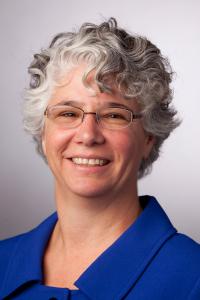
The Outstanding Research Awards highlight the remarkable work of our faculty in a range of disciplines and celebrate their enduring contributions to our research enterprise. We congratulate this year’s recipients who inspired us with their accomplishments during a year unlike any other.
